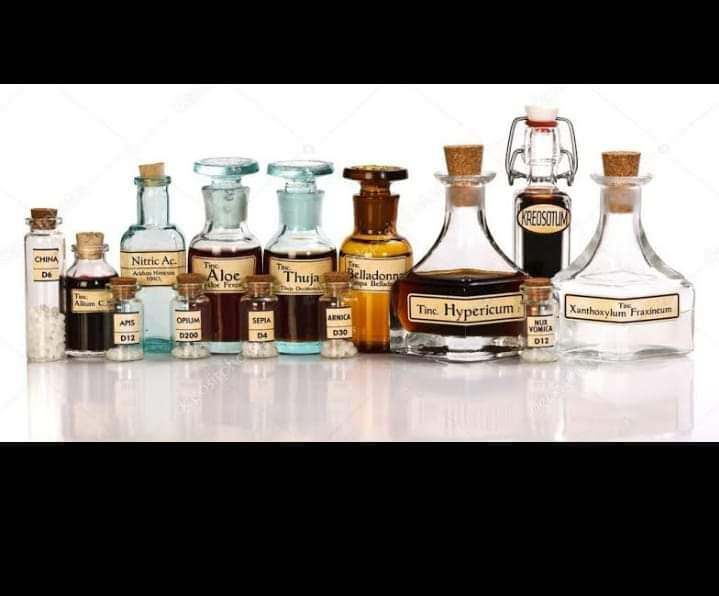Wednesday, February 22, 2023
Splenomegaly
Warts
Sunday, February 19, 2023
HOMEOPATHY FOR SUICIDAL BEHAVIOUR

HOMEOPATHY FOR SUICIDAL BEHAVIOUR

Dr. KS. Gopi
Former Professor, Govt. Homeopathic medical…
Suicide is the model of psychiatric emergencies and is the commonest cause of death among the psychiatric patients.
Suicide is a type of deliberate self- harm (DSH) and is defined as a human act of self-intentioned and self-inflicted cessation (death). It ends with a fatal outcome. DSH is an act of internationally injuring oneself, irrespective of the actual outcome.
An attempted suicide is an unsuccessful suicidal act with a nonfatal outcome. It is believed that 2-10% of all persons who attempt suicide, eventually complete suicide in the next 10 years.
A suicidal gesture, on the other hand, is an attempted suicide where the person performing the action never intends to die by the act. However, some of these persons may accidently die during the act.
Attempted suicide is more common in women while completed suicide is 2-4 times commoner in men.
Causes
Some of the common cause of suicide include:
Psychiatric disorders
Psychiatric disorders are a major cause of suicide; for example
a. Depression
· Major depression
· Depression secondary to a serious physical illness
· Reactive depression, secondary to life stressors, e.g., family and/or marital disputes, failure in goal achievement, occupational and financial difficulties, and death of significant others.
b. Alcoholism and drug dependence
c. Schizophrenia
Genetic factors (a concordance rate of 18% in monozygotic twins) and biochemical factors (low levels of 5-HIAA) are important in some cases of suicide.
Physical disorders
Patients with incurable or painful physical disorders, such as cancer and AIDS, often commit suicide.
Psychosocial factors
Psychosocial factors are very important cause of suicide. Some of the examples are failure in an examination, love affairs, dowry difficulties, marital difficulties, illegitimate pregnancy, family problems or family psychopathology, loss of a loved object by death or otherwise, occupational or financial difficulties, and social isolation. In about 16% cases, no obvious causes were found.
Management
Once suicide is committed, it is obviously no longer treatable. The management of suicide, therefore, lies in preventing the act.
Some important steps for preventing suicide include:
a. Take all suicidal threats, gestures and/or attempts seriously and notify a psychiatrist or a mental health professional.
b. Psychiatrist or a mental health professional, should quantify the seriousness of the situation (a proper risk assessment) and take remedial precautionary measures.
· Inspect physical surroundings and remove all means of committing suicide, such as sharp objects, ropes, drugs, firearms, etc. Also, search the patient thoroughly.
· Surveillance, depending on the severity of risk.
c. Acute psychiatric emergency interview.
d. Counselling and guidance.
· To deal with the desire to attempt suicide.
· To deal with on-going life stressors, and teaching copying skills and interpersonal skills.
e. Treatment of the psychiatric disorders with medication and psychotherapy.
Follow-up care is very important to prevent future attempts or suicide.
HOMOEOPATHIC REMEDIES
ALUMINA
Suicidal tendency or impulses when seeing a knife or blood. Alumina patients are sad, apprehensive, wants to get away, everything is viewed in sad light.
AURUM METALLICUM
Aurum met. is one of the best remedies for depression, which leads to suicide. Aurummetallicum patients are very serious people, strongly focused on work and achievement, who become depressed if they feel they have failed in some way. Nervous breakdown. Thinks of committing suicide but fears death greatly. Disgusted of life and thoughts. Profound despondency. Peevish. Rapid and constant questioning without waiting for answers. Oversensitive to noise. Discouragement, self – reproach, humiliation and anger can lead to feelings of emptiness and worthlessness. The person may feel worse at night with nightmares or insomnia.
NATRUM SULPHURICUM
Suicidal impulses, has to use self-control to prevent shooting himself. Mental troubles arising from injury to head or ill effects of falls. Depression worse music or subdued light, sitting near a stained-glass window. Natrum sulph. patients are sensitive and suspicious. Dislikes to speak or to be spoken to.
NUX VOMICA: Suicidal tendencies in alcoholics. Very irritable. Nervous and excitable. Suicidal, homicidal impulses. Fear of knives, lest she should kill herself or others. Impulses to shoot himself with a gun or jumping from a height.
SEPIA: Wants to commit suicide. Nobody knows what she will do next. Sepia patients are irritable, angry and sensitive, easily offended and miserable. Indifference to those love ones, aversion to occupation and family.
SILICEA: Mood changes due to hormonal imbalance. Loss of self- confidence, dreads failures. Fixed ideas. Sad, hopeless. Disgust for life, wishes to drown herself. Cries when telling her symptoms. Disgust of life. Anxious towards evening. Bearing down sensation in pelvic region.
THUJA OCCIDENTALIS
Dullness of mind. Fixed ideas. Thinks his blood is dirty or poisoned. Emotional sensitiveness, music makes weeping and trembling. Mental depression after childbirth. Over-excited, she is tempted to kill herself, till she bleeds.
Friday, February 10, 2023
Thursday, February 9, 2023
REMEDY INDICATION FOR CHILD BEHAVIOR IN DIFFERENT SITUATION
Tuesday, February 7, 2023
Epilepsy
Thursday, February 2, 2023
Mother Tinctures
phimosis
PHIMOSIS [Narrowing of the foreskin of the penis) :- 1) An excellent remedy for narrowing of the fore skin of the penis : Merc Iod 30. 2) Fo...

-
PHIMOSIS [Narrowing of the foreskin of the penis) :- 1) An excellent remedy for narrowing of the fore skin of the penis : Merc Iod 30. 2) Fo...
-
Common Trios ♻ of Medicines : ♻ Trio of Thirstlessness : Apis, Aethusa, Pulsatilla ♻Trio of Masturbation and excessive venery: Nux vomica , ...
-
एक दो बून्द और कुछ मात्रा में एलोवेरा जूस डालकर पिए। अब आप आधे से एक घण्टे तक कुछ ना खाये पिए। रोजाना ऐसा करने से थायराइड की बीमारी जल्दी ठी...
-
HOMOEOPATHIC TREATMENT OF SWOLLEN LYMPH NODES CALCAREA IODIDE - Calcarea iodide is an excellent remedy for enlargement of glands. The pecul...
-
*Gout and Its Homeopathic Management* Gout is a type of arthritis characterized by sudden, severe attacks of pain, redness, and tenderness ...
-
*Trios means “A set of 3 best remedies for a particular symptom or a disease condition”*. *Dr E B Nash was one of the pioneer...
-
*EPISTAXIS AND IT'S HOMOEOPATHIC MANAGEMENT* Epistaxis ,also called a nosebleed refers to a minor bleeding from the blood vessels of the...
-
Earaches can make life miserable. At times, the pain gets so intense that it throws life in jeopardy. This is where homeopathic medicines ...













